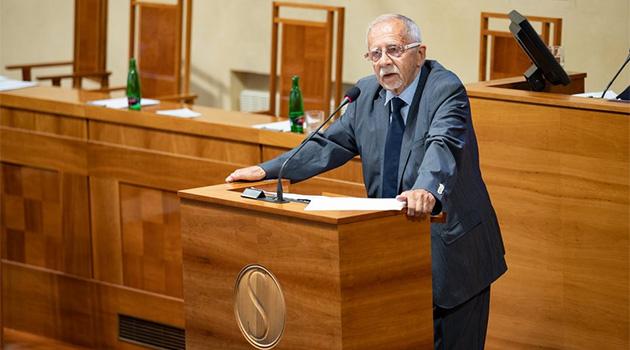Czech ombudsman sharply criticizes Health Ministry's handling of the compensation process for forced sterilization victims: Applications handled slowly, communication unfriendly

Czech Public Defender of Rights (ombudsman) Stanislav Křeček has determined that the Health Ministry has committed misconduct in its handling of the compensation procedure for persons who have been unlawfully sterilized. The ministry is not managing to handle applications for compensation within the deadline established by law, has been unfriendly to the applicants in its communications with them, and has failed to inform them of their rights in the process, according to materials published to the website of the Office of the Public Defender of Rights.
The ombudsman investigated the ministry’s procedure on his own initiative. He began the investigation last year on the basis of complaints from more than 30 applicants for compensation.
His focus was on the process for handling those complaints, i.e., how the ministry itself dealt with the complaints as a formal matter. According to his findings, the ministry is not handling applications for compensation within the deadline established by law.
The ministry, therefore, is not just violating the law itself, but also the basic principles governing the work of administrative bodies and the principles of good administration, specifically, the principle of timeliness. The ombudsman warned that most of the applicants are elderly.
What the applicants are chiefly interested in is the state recognizing that it allowed laws to be broken in the past which then impacted the rest of their lives. “The faster their applications will be settled, the less uncertainty they will experience. Cases have already come to light of applicants passing away during the settlement of their applications for compensation,” the ombudsman stressed.
The ombudsman proposes the ministry consider whether in selected cases (for example, among the applicants of advanced age or those with serious diagnoses of life-threatening illnesses) it would be possible to settle their applications as a matter of priority and not based on their submission date. “Such an approach would be especially accomodating in cases where the applications for compensation have been rejected and where the applicants have successfully defended themselves through an administrative lawsuit in which the courts have overturned the minister’s decision to reject them and the ministry has to review the application again,” Křeček said.
He also reproached the ministry for its reportedly unfriendly communications. The applicants, according to the ombudsman, have been frequently grappling with the fact that it has been impossible to reach the bureaucrats by telephone and that their e-mails to them have gone unanswered.
In the report on his investigation, the ombudsman expressed appreciation for the fact that the ministry has in the interim already corrected one aspect, in that it has clarified its instructions to the applicants about their rights. What has been added to their communications is the information that applicants are able to use other evidence to prove their claims for compensation besides their medical records, such as testimonies from persons close to them or personal diary notes.
In 2004, the European Roma Rights Centre (ERRC) came forward with its suspicions that Romani women in particular were being forcibly sterilized in the Czech Republic. Dozens of women then added their names to those complaining to the ombudsman and some turned to the courts.
The Czech Government Committee against Torture proposed a compensation procedure be instituted in 2006. In 2009, the cabinet apologized for the illegal surgeries.
The victims have been able to apply for compensation by law since last year. Persons subjected to such surgery between 1 July 1966 and 31 March 2012 who did not freely decide to undergo the procedure and were not informed as to its impact on their health could receive CZK 300,000 [EUR 12,000] from the state.
The ministry has to respond to the applications within 60 days. After the claim is acknowledged, the ministry then has 30 days in which to send the money.
DOCUMENT